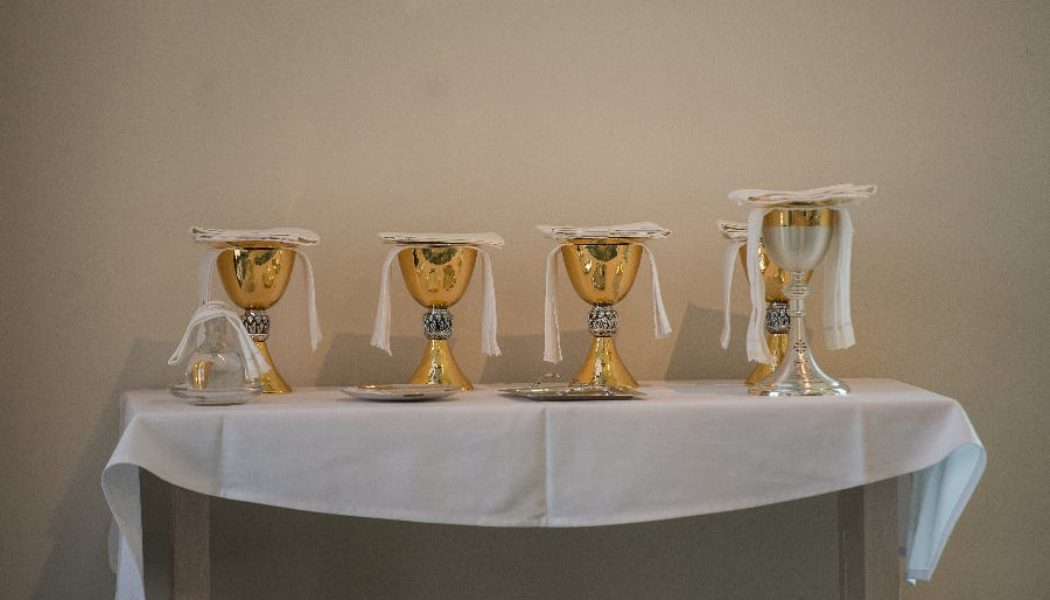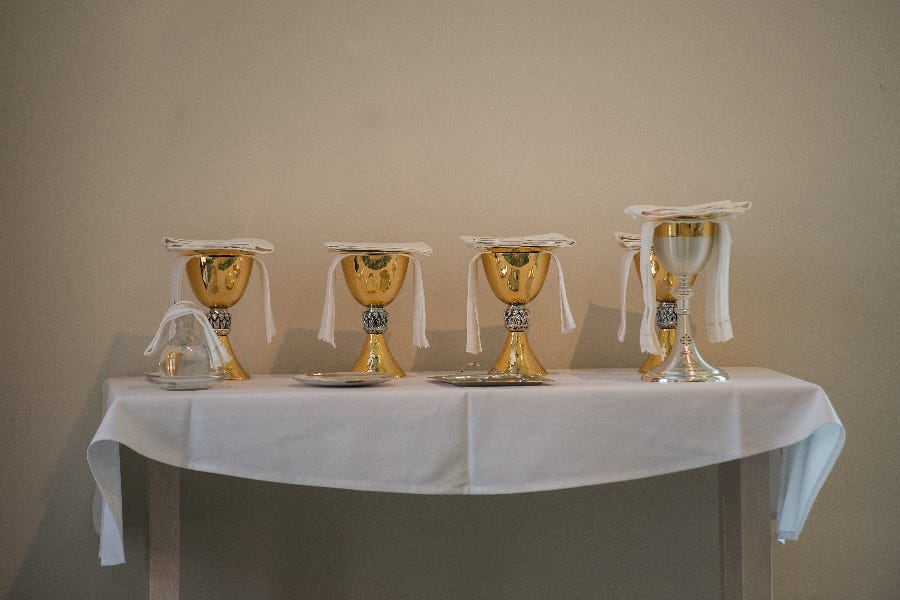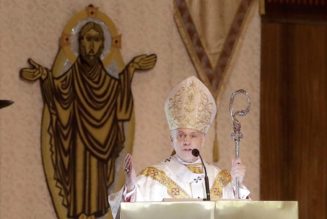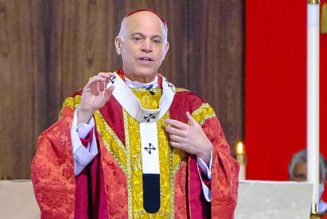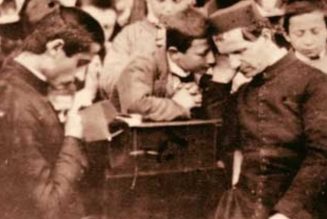Nigeria’s bishops’ conference expressed “righteous indignation” Thursday at an “alarming increase” in liturgical abuses.
In a letter to the country’s priests, dated Aug. 15, the Solemnity of the Assumption, bishops’ conference officials said clergy had committed “grave violations” that were “a source of scandal and embarrassment to the Church in Nigeria.”
The letter — signed by bishops’ conference president Archbishop Lucius Iwejuru Ugorji, liturgy committee chairman Bishop Augustine Ndubueze Echema, and general secretary Bishop Donatus Aihmiosion Ogun — named 12 specific abuses:
-
Deviations from prescribed prayers and rubrics of the Mass, including the Eucharistic Prayer.
-
Irreverent handling of the Eucharist.
-
Priests walking down the aisle while carrying the monstrance during exposition of the Blessed Sacrament and blessing people, “using gestures akin to sprinkling of holy water.”
-
“Inappropriate music,” including secular songs.
-
“Indecorous dance,” including during Eucharistic exposition.
-
Commercializing the liturgy by “taking up too many collections and fundraising right in the middle of liturgical celebrations.”
-
Using the pulpit “to pursue personal interests.”
-
Incorporating local customs inconsistent with the Catholic faith under the pretext of inculturation.
-
Failure to wear proper vestments.
-
Lack of adequate preparation for liturgical celebrations.
-
The “invention of rites,” including the ceremony of child dedication where a youngster is sometimes placed on the altar.
-
The blessing of items not approved by the Church as sacramentals.
Nigeria, Africa’s most populous country, is believed to have the highest percentage of Mass attendance in the world.
According to the advocacy group Open Doors, Nigeria is also the sixth-worst country in which to be a Christian, amid violence by Islamic extremists and frequent kidnappings of clergy by bandits.
In their letter, the three prelates said that priests who failed to follow the Church’s liturgical norms were guilty of “a serious betrayal” and “leading the faithful astray.”
“We remind our priests that the altar is not a stage for theatrics, nor is the liturgy a venue for novelty,” they said.
“The Church has given us clear directives on how the liturgy is to be celebrated, and these must be followed without exception.”
“Fidelity to the laws of the Church is not optional — it is mandatory. The faithful deserve nothing less than the true and reverent celebration of the mysteries of our faith.”
The letter also had strong words for the country’s bishops.
“To our bishops, the chief liturgists of their dioceses, we issue a solemn charge: Take immediate and decisive action to correct these abuses,” it said.
“The faithful look to you for leadership, and it is your sacred duty to ensure that the liturgy in your diocese is conducted with the dignity and reverence it demands.”
The letter urged bishops to use penal measures, where necessary, against offending priests, “making them realize the gravity of their actions and deterring others from committing similar offenses.”
The vast majority of Masses in Nigeria, a country with around 32 million baptized Catholics, are celebrated in the Ordinary Form of the Roman Rite.
Masses in the Extraordinary Form, also known as the Traditional Latin Masses, are celebrated in a handful of locations.
The country also has a Maronite eparchy, or diocese, which uses a liturgy rooted in the ancient West Syriac Rite.
Academic papers have detailed liturgical abuses in the Catholic Church in Nigeria.
In an 2018 essay entitled “The Church in Nigeria and Fund-raising: Checking the abuses,” seminary lecturer Patrick Paul Udoh argued that, due to Pentecostal influences, fundraising was encroaching into the liturgy in Catholic parishes.
He said that Masses were often rushed to make time for financial appeals.
“The Church in Nigeria cannot afford to turn a blind eye to these abuses,” he wrote. “Much as money is important, she cannot allow abuses to ruin her image and ultimately her mission.”
In a 2023 article, Fr. David Okole, a priest in Nigeria’s Imo State, said he had witnessed two priests breaking the consecrated Host (fractio panis) at the wrong time at Mass.
He suggested they had learnt the practice from other priests, “because no liturgical text and professor would actually teach that.”
The Nigerian bishops’ conference’s liturgy/pastoral committee recently launched a liturgical catechesis bulletin.
The first edition, issued in October 2023, focused on preparation for Mass, with illustrations of vestments. The second, released in April 2024, offered a guide to the penitential act.
Pope Francis referred to the problem of liturgical abuses in a letter to the world’s bishops accompanying his 2021 motu proprio Traditionis custodes, curtailing Extraordinary Form Masses worldwide.
“I ask you to be vigilant in ensuring that every liturgy be celebrated with decorum and fidelity to the liturgical books promulgated after Vatican Council II, without the eccentricities that can easily degenerate into abuses,” the pope wrote.
“Seminarians and new priests should be formed in the faithful observance of the prescriptions of the Missal and liturgical books, in which is reflected the liturgical reform willed by Vatican Council II.”
The pope returned to the subject in his 2022 apostolic letter Desiderio desideravi, in which he criticized “a heightened personalism of the celebrating style which at times expresses a poorly concealed mania to be the center of attention.”
“Often this becomes more evident when our celebrations are transmitted over the air or online, something not always opportune and that needs further reflection,” he said.
“Be sure you understand me: these are not the most widespread behaviors, but still, not infrequently assemblies suffer from being thus abused.”
Concluding their Aug. 15 letter, the three Nigerian prelates wrote that the liturgy is “a foretaste of the heavenly banquet, a sacred encounter with the divine, and must always be conducted with the utmost solemnity and reverence.”
“Any actions that diminish this sacred encounter are to be condemned and corrected with the seriousness they deserve,” they said.
“We extend our heartfelt gratitude to all the priests who, in their celebration of the liturgy, remain faithful to the teachings and traditions of the Church.”
“Your commitment to reverence, decorum, and fidelity upholds the sanctity of our worship and serves as a shining example to all.”
“May our liturgical celebrations always reflect the beauty, order, and sanctity that they are meant to convey, leading the faithful closer to the mystery of Christ; and may our Lady, assumed into heaven, intercede for us that we may be faithful to the teachings of her Son and of the Church. Amen.”
Comments 23
Services Marketplace – Listings, Bookings & Reviews
